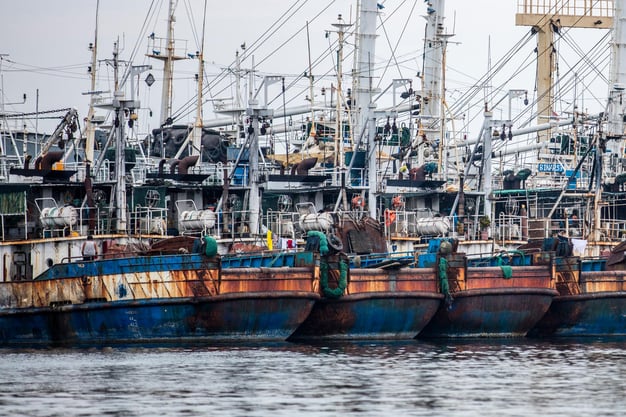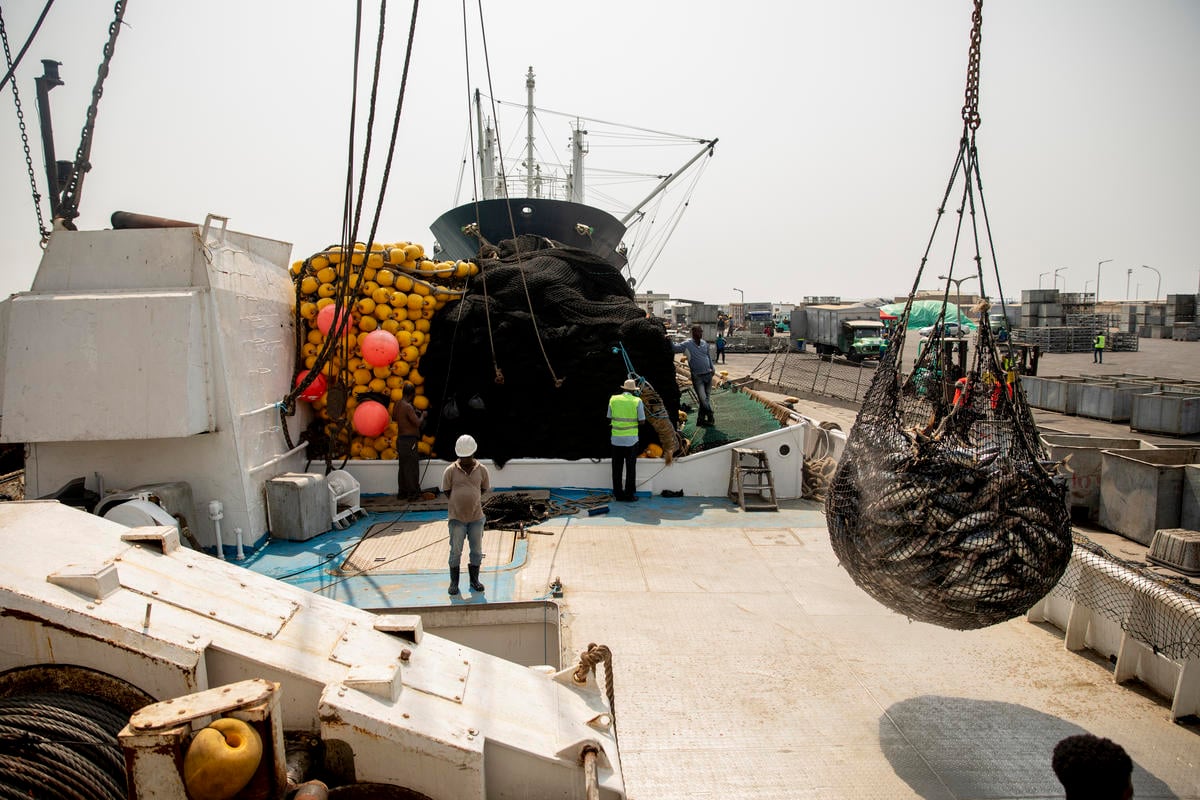
WWF is urging the removal of harmful fishing subsidies that are adding to the impact of climate change in the ocean.
By Heike Vesper, Chief Executive, Transformation Politics and Markets, WWF-Germany and Robin Davies, Global Sustainable Fisheries Lead.
“It’s time for action,” is the theme for the World Trade Organization Public Forum, and we couldn’t agree more.
The event from 12-15 September follows a scorching Northern Hemisphere summer with record-shattering temperatures that have contributed to a global marine heat wave, the effects of which will extend for months or longer.
The undeniable, intensifying effects of climate change on our planet are also affecting our politics, breaking down silos that once kept talk of trade separate from discussions about climate.
This year’s Public Forum starts with “Conversations on the Trade, Global Economy and Climate Nexus.”
Indeed, across the week’s agenda, the words “sustainable” and “green” are ubiquitous while “profit” doesn’t appear at all.
WWF’s focus at the forum will be ending harmful fisheries subsidies through ratification and successful implementation of the Agreement on Fisheries Subsidies and an ambitious result from the second wave of negotiations.
Ocean health
If it seems like we’ve veered from climate to fisheries subsidies, let’s look at why we need to tackle the issues together.
The well-documented negative impact of harmful fisheries subsidies on ocean health and the well-being of fishing communities has been discussed within the WTO for two decades.
Over the course of those 20 years, many fish populations have been decimated, and according to the UN Food and Agriculture Organization, globally about a third of assessed stocks are fished beyond sustainable levels.
At the same time, greenhouse gas emissions have increased year on year.
So, while governments are funding overcapacity and pushing fish populations to the brink, we are compounding the stress by making the ocean hotter, more acidic and less habitable for marine species through climate change.
We’ve got to take the pressure off.
Subsidy reforms supporting sustainable fisheries can make the ocean itself more resilient to climate change, while delivering social and economic benefits.
That’s because fish and other marine wildlife don’t just dwell in the ocean – they make it function.
When large species like tuna, whales and sharks dive and surface, they mix the water column, bringing nutrients from the deep to the surface, which nourish plankton and other fish.
Predator species play an important role in maintaining balance in the marine environment by keeping populations of prey species in check.
Healthy fish populations also support the nutritional, social and economic well-being of billions of people around the world, many of whom have limited alternatives for food or employment.
But the vast majority of the US$35.4 billion in global fisheries subsidies goes to industrial, large-scale fisheries – 81% compared to 19% going to small-scale fisheries.
This unfair advantage to those who need it least perpetuates overfishing that is not economically or environmentally sustainable.

The government of Ghana works with WWF and other international organizations to implement electronic monitoring of the country’s tuna fisheries
National policies are important, but insufficient to fix the problem; with migratory fish stocks moving between international high seas and territorial waters, the WTO plays an essential role in curbing harmful fisheries subsidies at a global scale to create a level playing field.
Ratifying and implementing the current Agreement of Fisheries Subsidies will help address sustainability concerns such as illegal fishing and targeting overfished stocks; further negotiations must tackle the subsidies that fuel fleet overcapacity and overfishing broadly.
The first half of 2023 has shown that we do not have another 20 years to discuss and debate action to restore ocean health and build resilience.
Adding to human-caused ocean warming, we’re now entering the naturally occurring warming cycle in the Pacific, El Niño.
In June, El Niño prompted closure of the world’s largest single-species fishery, the Peruvian anchovy fishery.
And new research authored by Sarah Glaser, Senior Director of Oceans Futures at WWF-US, finds El Niño events are linked to declines in catches in the East and South China Seas, as well as for highly migratory and lucrative fisheries like tuna, with a corresponding increase in the risk of militarized fisheries disputes.
The urgent need to address the related crises of collapsing fish stocks, declining ocean health and international conflict should be incentive enough to address harmful fisheries subsidies.
Job creation
But if more persuasion is needed, a 2021 report commissioned by WWF revealed that 39 million jobs could be created if governments reallocated just one year’s worth of subsidies that harm biodiversity to a nature-positive stimulus instead.
And in 2020, the World Economic Forum’s “Future of Nature and Business Report” projected that nature-positive solutions could create 395 million jobs by 2030 and $10.1 trillion in business opportunity.
These figures and reports cover subsidies beyond the fishing sector, but the message is clear.
Governments have much more to gain than lose for their people, the ocean and the climate by acting with the WTO to reform fisheries subsidies.
Now is the moment for WTO members to be true ocean allies.
By concluding and implementing comprehensive rules to phase out harmful fisheries subsidies, they can restore and maintain healthy fish stocks and ocean ecosystems, with broader benefits across sectors.
See also:
- Welcome news for Great Barrier Reef's threatened wildlife
- WWF sustainable seafood guides
- New ocean treaty is landmark moment
More about our ocean work


